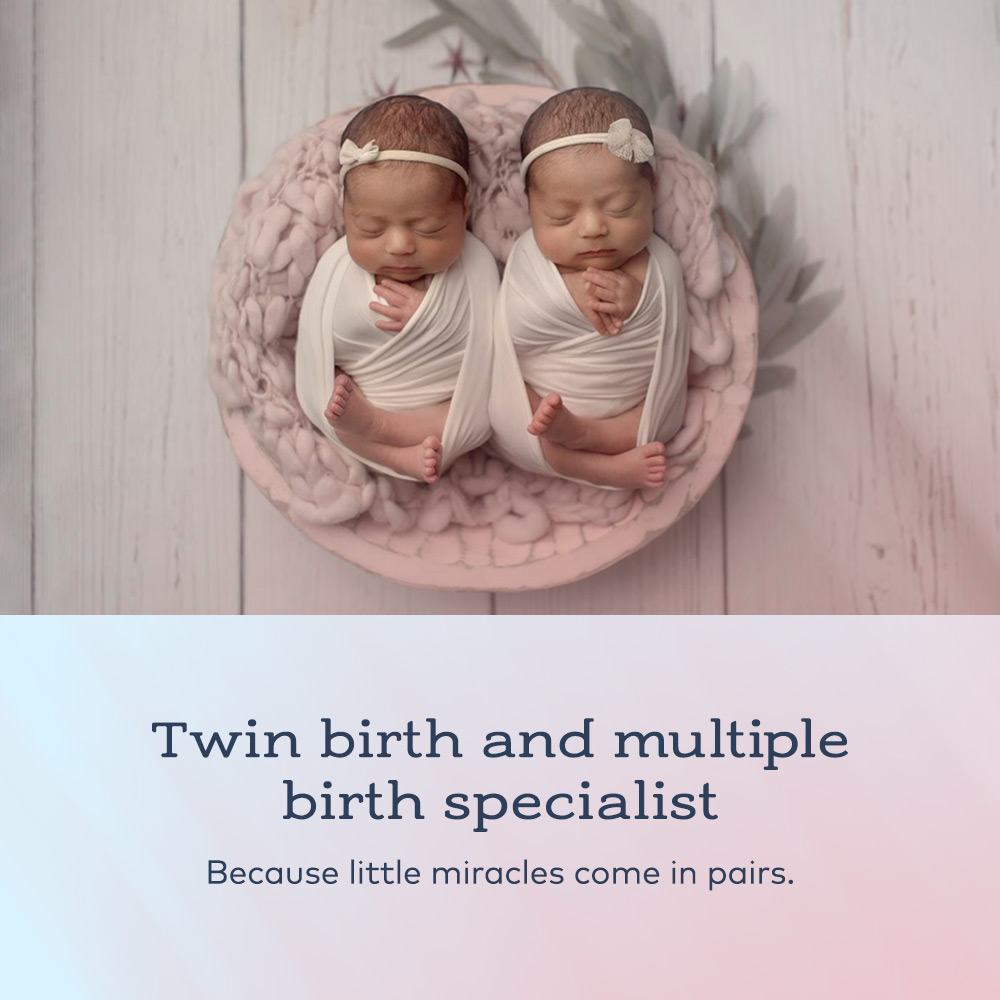Managing Multiples (Twins, Triplets and More)


As a maternal foetal medicine expert, Dr Shetty is highly competent at guiding parents through a multiple birth pregnancy and considers it “one of the most exciting, exhilarating and demanding” aspects of her job.
Here are your most asked questions about managing multiples.

About 1 in 80 births in Australia are twin births.
Although naturally occurring twins or multiples occur in pregnancies, some other factors that increase the risk of multiple pregnancies include assisted fertility treatments and advancing age in mothers.
Having twins in family, having any pregnancy before are some other risk factors that increase the chance of twins or multiple births.
Fraternal twins or triplets are the most common type of twins, and this phenomenon occurs when separate sperm fertilise separate eggs.
Each twin or triplet has their own amniotic sac and placenta. They may comprise a girl and a boy or be two girls or two boys.
Identical twins or triplets happen when a single egg splits into two or three fetuses, and these babies can either share a placenta and sac or have them separately.
They also share the same “identical” physical traits and characteristics and are the same sex.

What are the common complications of multiple pregnancies?
The good news is that healthy multiples are born every day!
But we understand that twins or triplet pregnancies can be a stressful time for families. Some common risks associated with multiple pregnancies are:
– Miscarriage: There is increased risk of miscarriage and failed pregnancy
– Congenital or genetic abnormalities: Twins or triplets can have higher risk of chromosomal or genetic conditions. They can also have high risk of structural defects.
– Preterm birth: Did you know that rates of “premmie” delivery before 32 weeks are approximately 2% percent for singletons compared to 12.5% for twins. This increases with triplets or higher order multiples. A common cause of preterm birth is overstretching of your uterus and shortening of your cervix in twins.
– Fetal growth restriction: Twins or triplets are also at increased risk of growth restriction. Complications may include discordant growth with one twin smaller than the other.
– Other risks: gestational diabetes, high blood pressure and C-Section delivery along with twin-twin transfusion if one baby sharing a placenta is receiving too much blood and the other bub not enough.
– Rates of cerebral palsy are also four to eight times higher in multiple births than singletons, while another risk is cord entanglement, and careful surveillance with ultrasound is critical to monitor and help prevent this.
How can Dr Shetty help you?
Dr Shetty has received special ultrasound training at three fetal medicine centres across NSW to learn and deal with possible complications that may arise during multiple births.
Dr Shetty will offer you the highest level of care including:
– Early and regular ultrasounds to identify the type of twins and their complications.
– Monitoring your cervix length and offering medications or cervical procedures to reduce risk of preterm birth
– Some complications like twin-twin transfusion syndrome or selective growth restriction can only be identified by a fetal medicine expert so that these can be managed in time.
– Detailed morphology scan to look for any defects that might be missed elsewhere
– Regular growth scans to monitor the growth and wellbeing of your babies
– A birth plan that offers you the best possible outcome
– Postpartum support and assistance with her team of psychologists, neonatal experts, lactation support and midwives.
Where can I deliver twins and triplets?
Westmead private hospital has the required facilities to care for you and your babies if you have multiple pregnancy.
Some twins or triplet births may end in preterm birth or develop complications requiring you to give birth at a public tertiary hospital.
Dr Shetty is a staff specialist at Westmead public and if required can move your care to Westmead public hospital which is co-located with the Children’s Hospital at Westmead.
This allows Dr Shetty to provide her patients with the highest standard of private hospital care, whilst having access to tertiary NICU facilities if required. So that you can have the peace of mind and the best support available to you.
Additional Reading


